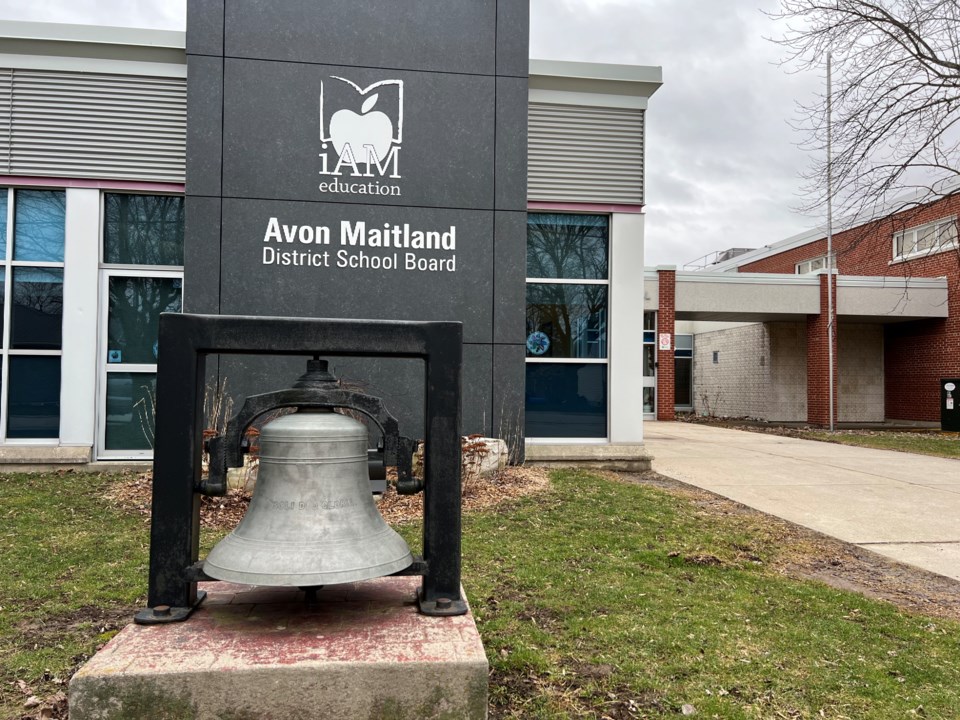The Avon Maitland District School Board (AMDSB) is currently celebrating two significant educational weeks, with both Treaties Recognition Week and Holocaust Education Week running concurrently.
The board shared notice of these events on their social media, highlighting the value of providing students of the AMDSB with education in both areas. Jana Bayer Smith, a system principal at the board, said preparation for the Treaties Recognition Week began with educators across the district participating in virtual ‘learning circles’ hosted by the AMDSB’s Indigenous Education team.
“This session provided valuable historical and cultural background on Treaties 29 and 45 ½, deepening educators’ understanding of the treaties that cover the land on which our school board resides – it reinforced the importance of honouring these agreements in our educational spaces,” she said. “While teachers independently determine how to incorporate treaty education into their daily work, they frequently use engaging approaches. For instance, some guide students in crafting their own land acknowledgements, helping to develop a personal connection with the land and its history. Others use books and stories about treaty relationships to spark discussions on shared rights and responsibilities. Additionally, some teachers plan lessons that take place on the land, helping students develop a connection to the more-than-human world they live on.”
Bayer Smit said one of the highlights this week was 60 secondary students taking part in an environmental forum, which began with guest speaker Jordan George from Kettle and Stoney Point First Nation. He focused on the treaties that govern the shared lands, and students were then able to explore sustainable practices, learned about plants that grow on the lands and the traditional uses for those plants, and collaboratively developed action plans that reflect a commitment to deepening the relationship with the land.
“This experience not only grounded students in the significance of treaties but also empowered them to apply this understanding through practices that honour the land and support a sustainable future,” she said. “Treaties Recognition Week is vital because it provides an opportunity for students in Ontario to learn about treaties and their significance in shaping our relationships today. They’re legally-binding agreements made between Indigenous nations and the government, establishing mutual obligations and responsibilities. – our board has prioritized Treaties Recognition Week to support Truth and Reconciliation in our education system, and by including this focus we build awareness, challenge misconceptions, foster respect and understanding, and promote active reconciliation.”
Jason Burt, the AMDSB’s Human Rights and Equity Lead administrator, talked about Holocaust Education Week being crucial for a number of reasons, not the least of which is fostering an awareness of the dangers of hatred, prejudice and discrimination.
“By understanding the historical context and impact of the Holocaust, individuals can appreciate the importance of human rights and the value of diversity,” Burt said. “It also honours the memory of the victims and survivors, ensuring their stories are not forgotten. Furthermore, it encourages critical thinking about moral choices and the responsibilities of individuals and societies in combating the injustices of every underrepresented and historically disadvantaged person.”
Burt said that the board’s Grade 6 social studies curriculum was revised in 2023, with specific expectations A3.7 and B3.5 pertaining to this area (the following is not a complete listing of the curriculum requirements, only a brief description of some of what is contained):
- Section A3.7 details the description of significant events or developments in the history of Jewish communities in Canada, including some ways they have contributed to Canada; prohibition of Jewish residents or property purchases in some Canadian neighbourhoods; reactions to the building of Toronto’s Mount Sinai Hospital in 1923 to serve the Jewish immigrant community and provide space for Jewish doctors who faced discrimination at other hospitals; resistance to antisemitism during the 1933 Christie Pits Riot in Toronto
- B3.5 details the description of the Canadian government’s human rights violations during the Holocaust; the turning away of the MS St. Louis; Canada’s policy to vastly restrict the number of Jewish refugees admitted from Europe, as shown by the response to the Evian Conference in 1938; Canada’s adoption of the Justice for Victims of Corrupt Foreign Officials Act (2017); the criminalization of Holocaust denial in Bill C-19 (2022)
“Ultimately, Holocaust education promotes empathy and a commitment to a more just and inclusive world,” Burt said.
